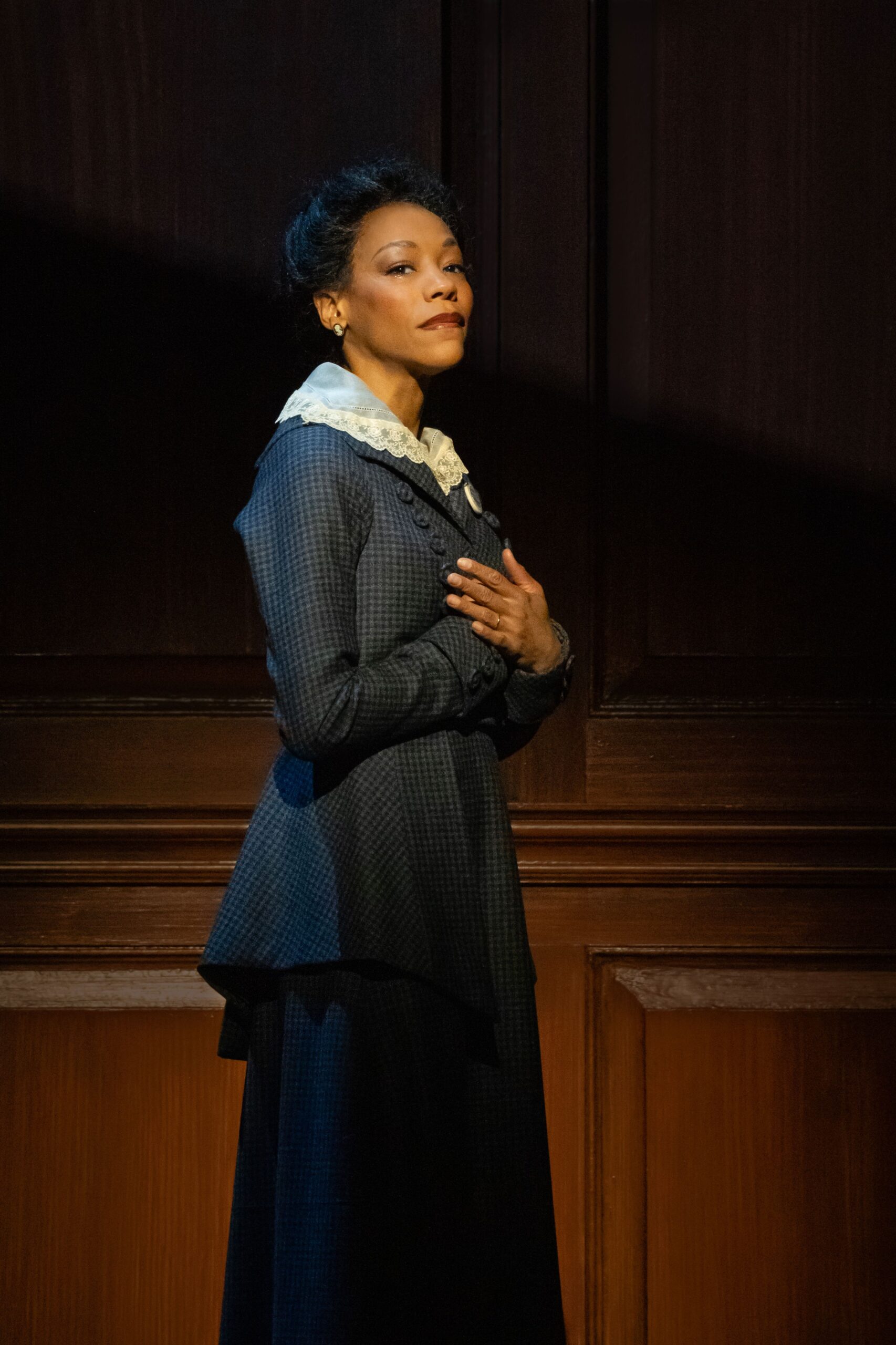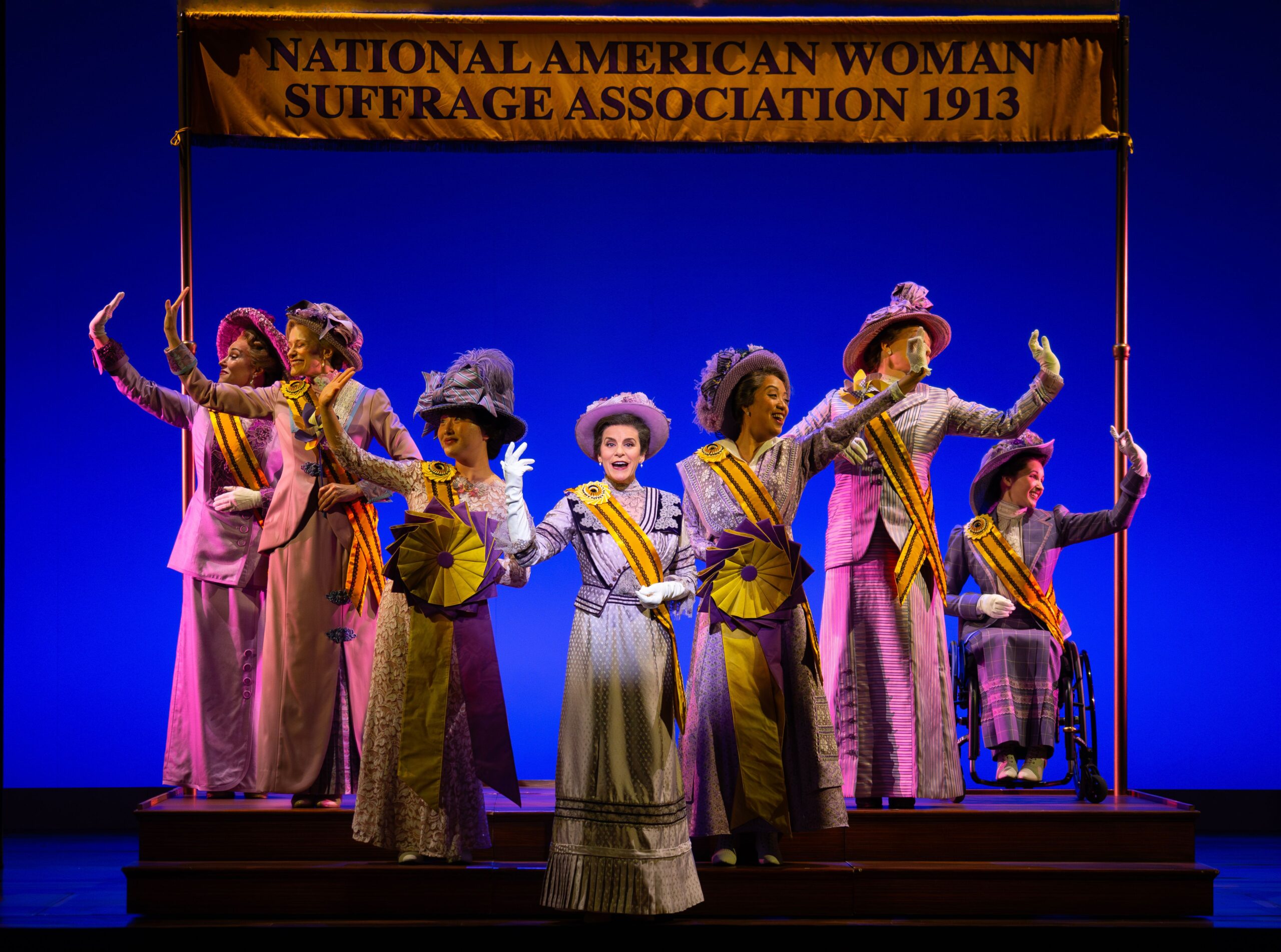NEW YORK CITY — I first learned about the musical Suffs, with a book, music, and lyrics by Shaina Taub in 2021, and had the privilege of attending it at the Public Theatre in April of 2022 during its off-Broadway debut. Knowing that I would be in NYC during election week 2024, seeing Suffs again became my number one goal. The Tony award winning (best book, best score) show tells the story of the women who fought for the right to vote, or suffrage, focusing on the events that led up to the passage of the nineteenth amendment, that gave women (well, some women) the right to vote in 1920. What was most telling the first time I saw this production, and even more so now, is just how much of this history was not taught in general history class and seems to be unknown to most people. It is tragic that this show is closing on January 5th, however a national tour has been announced to be starting in Seattle the fall of 2025, and I personally am extremely glad for many reasons to see this show make its way all over the country. No matter one’s political affiliation, understanding what happened before 1920, during the events surrounding the nineteenth amendment, and in the hundred and four years since should be an important history lesson that we all partake in.

While Taub usually also stars in the role of Alice Paul, in the performance I saw the role was played by alternate Hawley Gould because Taub is doing Ragtime at New York City Center. Gould has stepped into the role with grace and flare, reminding once again of the skill that it takes to be an alternate on Broadway. Their skills were matched by others such as the great Jenn Collela as Carrie Chapman Catt, Nikki M. James as Ida B. Wells, Hannah Cruz as Inez Milholland, and so many more that I could joyfully name this whole cast. One of the directorial choices by Leigh Silverman that I loved which may seem trite was the choice to have each member of the cast take their own bow, no matter the level of part. This felt important because the subject matter feels that important, every role is important, every help is necessary.
The story runs seamlessly, and watching felt like one strong point was hit by the next and then the next. James’s song “Wait My Turn” where her portrayal of real-life Black reporter Ida B. Wells gives a scaling and deserved retort to the people who tell her to wait her turn because they can only address one injustice at a time. It felt like a punch in the gut given our current political landscape, and her ability to deliver such a number was breathtaking. The song “If I Were Married”, sung by Nadia Dandashi as Doris Stevens and Tsilala Brock as Dudley Malone is an eye opening look at the laws and traditions meant to “protect” women that have instead left them trapped and invisible. The scene near the end of Act One with Cruz as Milholland working so hard and wearing herself out to campaign across states was staged so visually perfectly, and then the disappointment first with election results in the show for that, then with the real history of Milholland (if you do not mind a “spoiler” look up her history) adds even more to the magnitude of the story. The lighting design by Lap Chi Chu was also magnificent, especially during the hunger strike scenes in Act Two, where the lighting choices brought home just how cruel the treatment of the Suffs was.

The true magic of this show is the ensemble numbers. “From The March”, “The Campaign”, “The Young Are at the Gates”, and the truly, deeply moving show ender “Keep Marching”, the women in this cast have learned how to rise together in such magnitude, their beautiful voices directed by music director Andrea Grody, and show the history that seems to have repeated in our eyes many times in my lifetime. When Colella as Catt opens the show by stating she is speaking at the 65th annual conference for women’s suffrage, 7 years before the amendment is passed, it was a shocking reminder of just how long the fight to get the right to vote was for women, and then the scene at the end when Alice Paul is still fighting for the Equal Rights Amendment in the 1970s, it shows how the fight continues on, with the exquisite lyrics “we did not end injustice and neither will you. But still, we made strides so we know you can too. Make peace with our incomplete power and use it for good cause there’s so much to do.”
Just as The Notebook I saw yesterday, Suffs is leaving the Broadway stage too early on January 5th. I am even more excited for this production to start its national tour in 2025, and further excited for the day that MTI releases the rights to this story for production. There are a few reasons for this. As I have brought on this blog previously, a local director in Utah utilized some statistics to prove that male vs female auditions are a 1 to 4 ratio, so a quality script and score with a full cast of women is going to be divine in our market. What is more important, though, is the story to tell. We do not tell enough of women’s histories, the triumphs, the mistakes, the endurance, the fight. This story needs to spread. It should not only be told in the expensive Broadway and touring halls. This needs to be in the regional halls and the school halls and the learning spaces. The women throughout the country in regional areas, colleges, and high schools will make sure this story goes on far beyond the Broadway stage. Taub’s words should be out to help us keep marching and remember that progress is possible not guaranteed. I cannot wait to see this echo everywhere, and demand to be heard, and demand to be seen everywhere that it will be allowed to be.
[box] Suffs plays at 7, 7:30, or 8pm Tuesday-Saturday, with matinees at 2pm on Wednesdays and Saturdays, and matinees at 3pm on Sundays through January 5th at the Music Box Theatre, 239 W 45th Street NY, NY. For more information see https://suffsmusical.com/ [/box]
